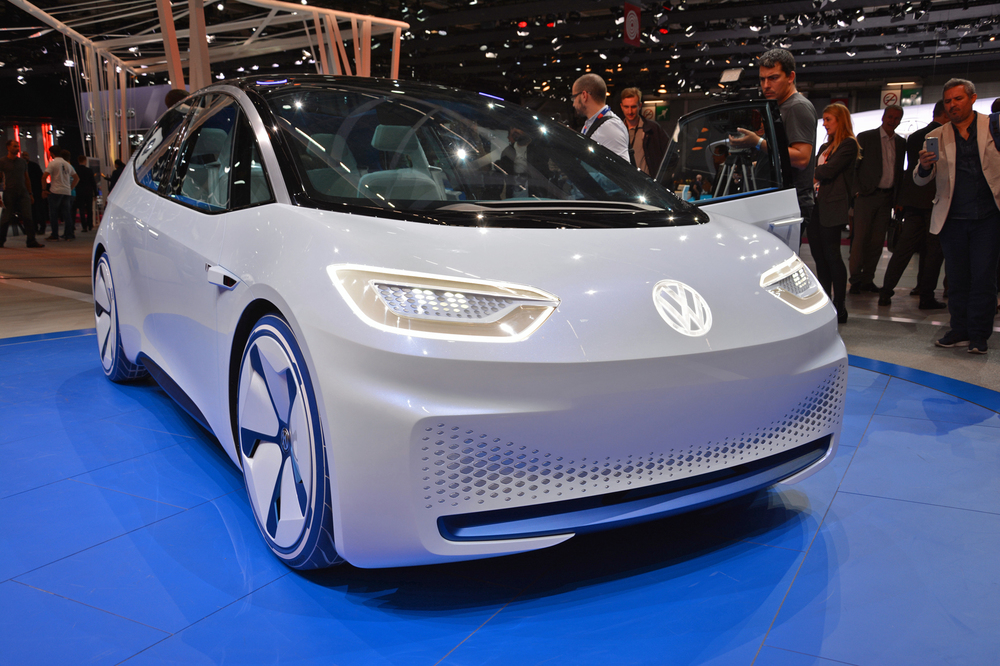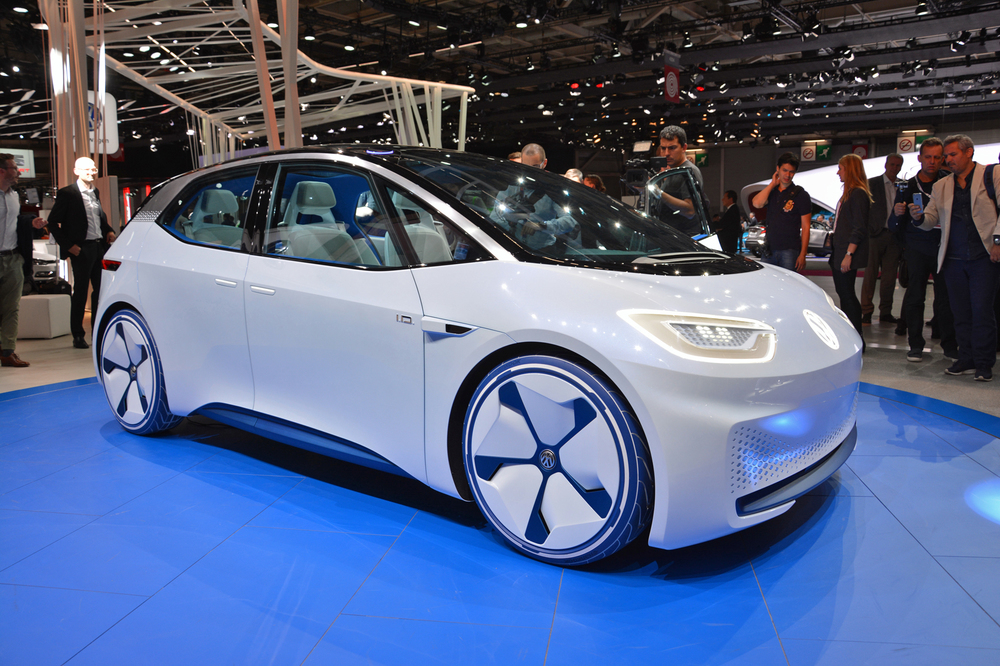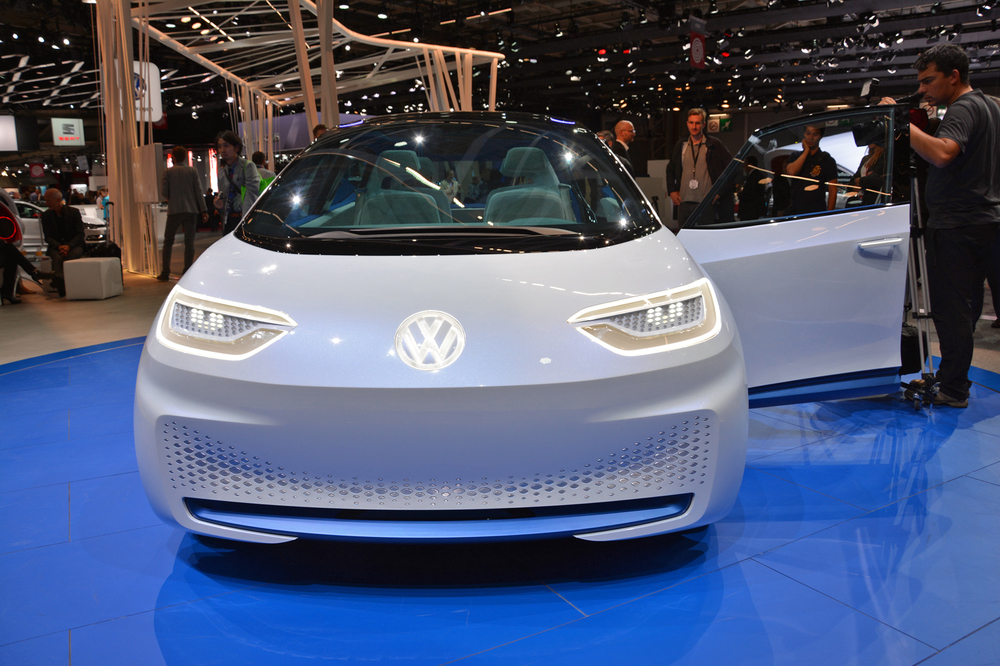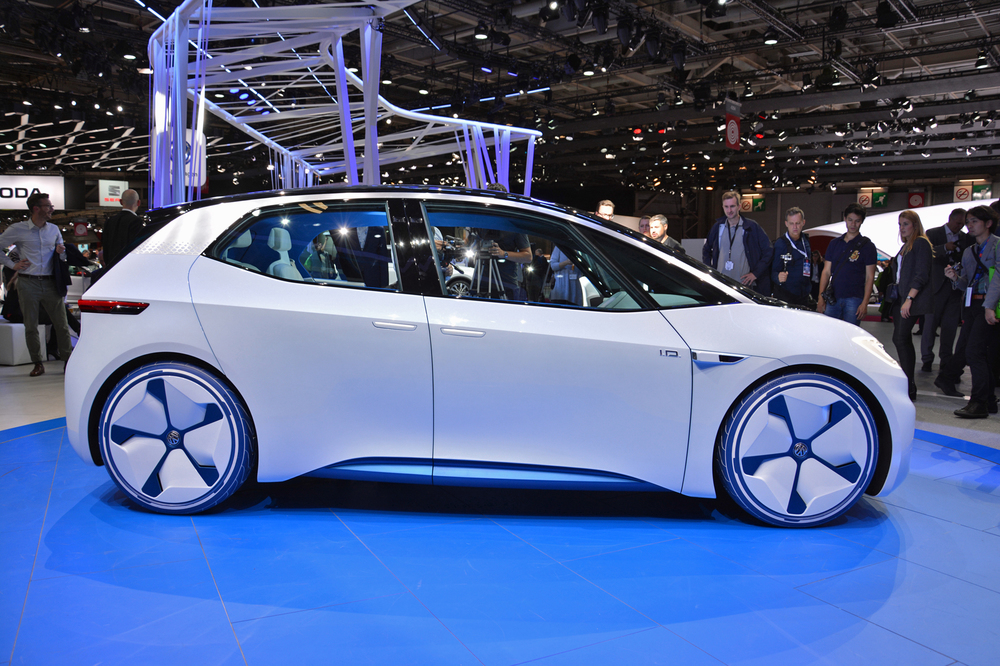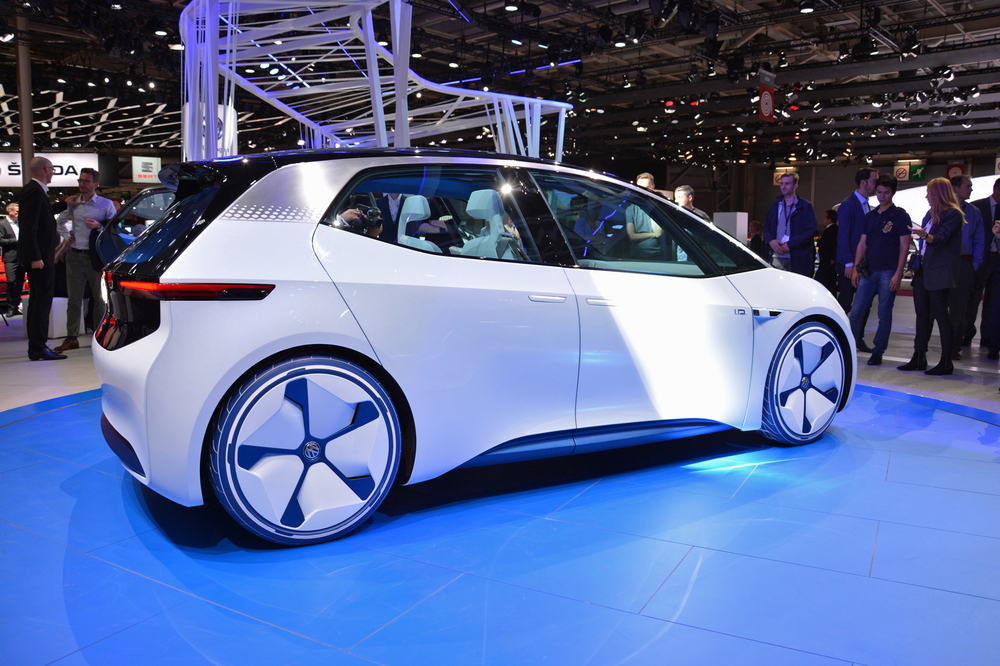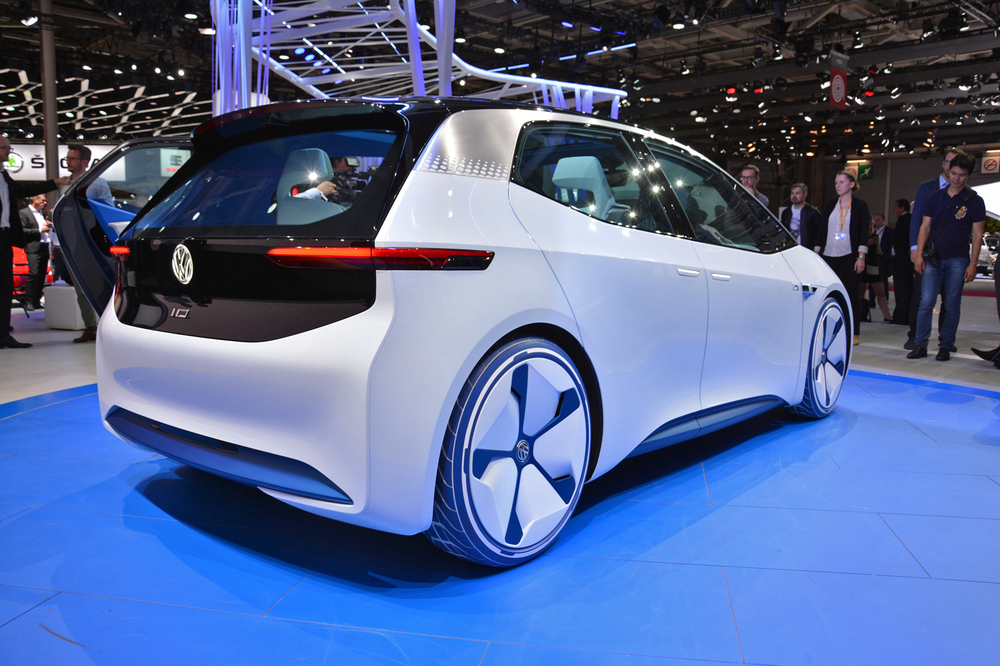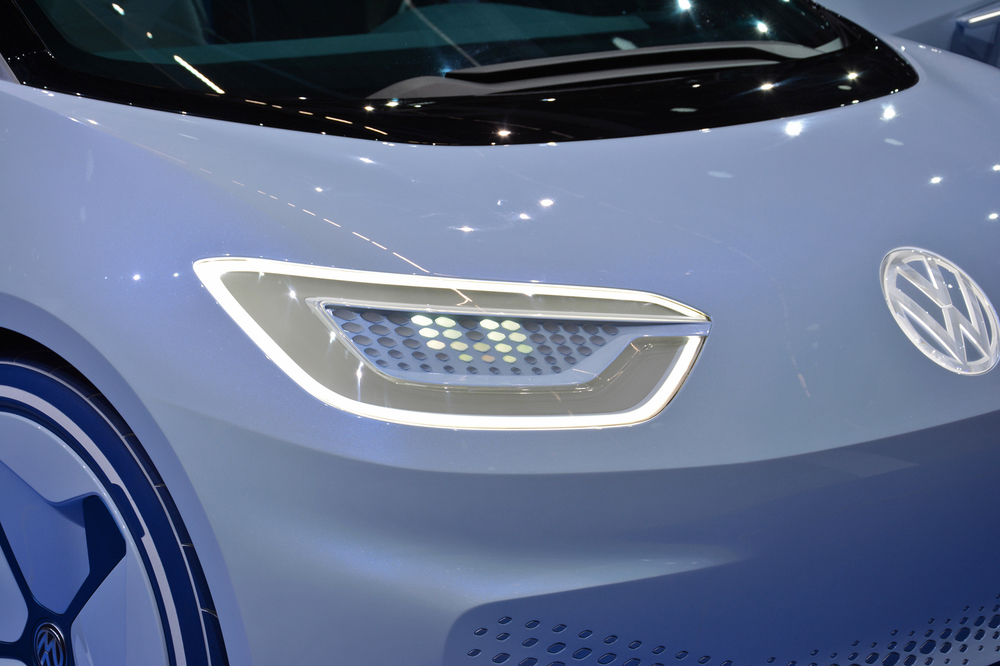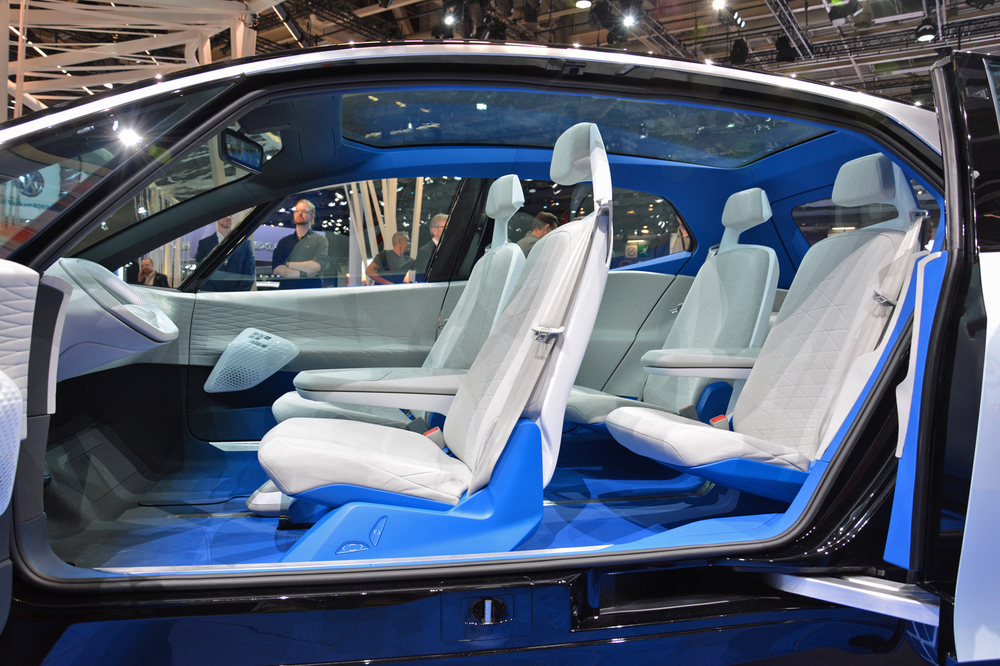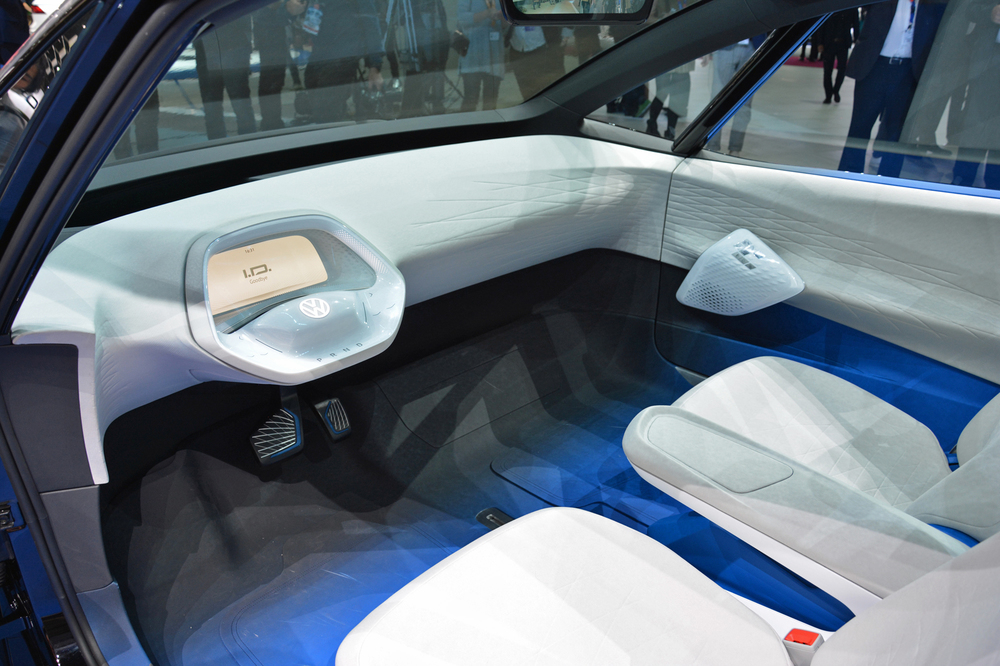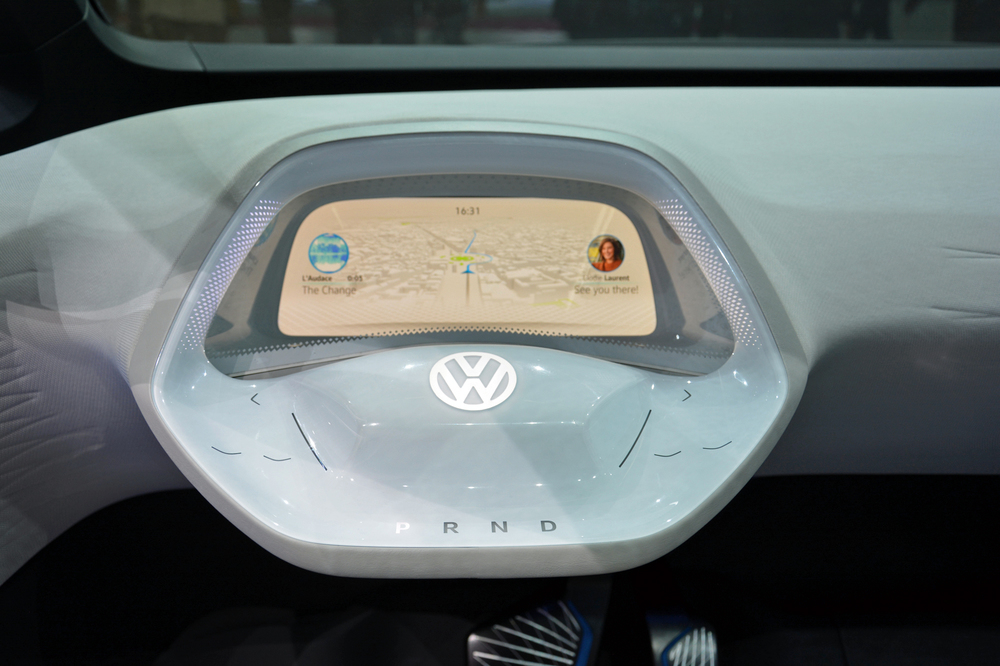When Volkswagen’s Dieselgate emissions scandal hit, the public reacted with surprise, anger, and disappointment. The automaker responded the only way it could — it apologized and promised to change. Moving forward, the brand would focus on “green” products and e-mobility, with 30 all-electric models being launched in the next decade.
Read more: VW takes the Sportwagen past where the pavement ends
Almost exactly one year after the Environmental Protection Agency’s initial notice of violation was filed, VW has taken another huge step into the EV market. This time, it’s one that should have Tesla and General Motors shaking in their boots.
The German brand has fully revealed the I.D. concept, which will make its public debut at the 2016 Paris Motor Show. An all-electric compact with autonomous driving capabilities, the I.D. previews a 2020 production car with ranges between 249 and 373 miles, but as we mentioned in our preview post, it’s possible those figures were calculated under the more liberal European testing cycle. Either way, it should be at least comparable to the 215 miles you’ll get from an entry-level Tesla Model 3 (bigger battery packs will eventually be available) or the 238 miles afforded in the Chevrolet Bolt EV. What’s more, VW says it’ll come at a price “on a par with comparably powerful and well-equipped Golf models.” For reference, the I.D. produces 168 horsepower and can zip to 60 mph in less than 8.0 seconds, with a top speed of 99 mph.
#Volkswagen I.D. concept unveiled. | #MondialAuto @Volkswagen pic.twitter.com/fH43zfLO2O
— Ronan Glon (@EuropeanCarNews) September 29, 2016
The I.D. is a milestone for VW and electric cars in general, but the car’s powertrain is only part of the equation. Built on the automaker’s Modular Electric Drive Kit (MEB) platform, the vehicle features a laser-enhanced automated mode dubbed I.D. Pilot, which actually retracts the multifunction steering wheel into the dashboard for driverless operation. What’s left is a seamless, lounge-like interior VW describes as Open Space, a layout born from the greater flexibility granted by a floor-mounted battery and a rear-mounted electric motor. Inside the Open Space, central infotainment systems will be a thing of the past, as menus controlling the car’s functions and features will be available to everyone.

In terms of exterior design, the I.D. concept has a familiarly futuristic look to it — it’s part Apple Store fixture and part Tron Light Cycle. It’s not all superficial though, as its extremely short overhangs give the car a distinct profile and its arrays of LED lights react differently depending on what the car doing. If it’s parked, for instance, the I.D. will “close its eyes,” leaving nothing but a narrow strip of LEDs illuminated in the headlights, and when it’s charging, blue light panels on the diffusers pulsate or “breathe.” It’s easy to call these designs unnerving or creepy, but honestly, we can wait to lay our own eyes on it in Paris.
Your phone is your key
Like it or not, the future will be populated with autonomous cars, and this concept gives us a glimpse into that future with individual driver profiles. In essence, all VW customers will have a Volkswagen profile that includes infotainment settings, climate and seat preferences, navigation configurations, and contacts, and they’ll be able to “load” their profile into any compatible car via their smartphone. Buyers will even be able to connect their car to home and receive packages with this technology. Just open the app, pop the trunk for the mailman, and you’re good to go.

A production version of the I.D. concept will be sold alongside the Golf in 2020, although the autonomous I.D. Pilot system won’t arrive until 2025. In total, Volkswagen hopes to sell 1 million electric cars per year by 2025.
Editors' Recommendations
- Volkswagen’s electric ID.Life concept car doubles as a gaming console
- Volkswagen’s electric I.D. R negotiated 99 hairpin turns in under eight minutes
